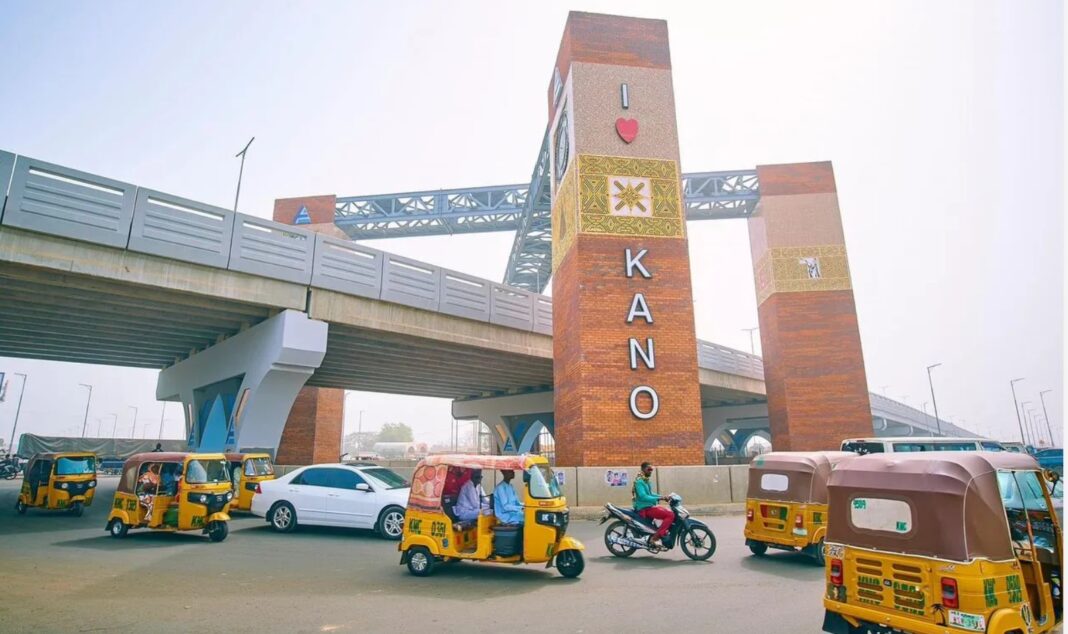In a bold and progressive move aimed at addressing the endemic youth unemployment crisis, Governor Abba Kabir Yusuf of Kano State has issued a directive requiring all companies operating within the state to ensure that 75% of their workforce comprises Kano indigenes. The policy, announced earlier this week, has been widely commended as a people-first approach that prioritizes the economic empowerment of host communities—something many believe is long overdue in other Nigerian states.
A Governor’s Mandate for the People
Governor Yusuf, elected under the banner of the New Nigeria People’s Party (NNPP), stated that the directive is a direct response to growing youth unemployment and underemployment in the state. The initiative, he noted, is consistent with the social contract that binds government to its citizens and falls in line with global best practices where host communities are given preferential access to job opportunities created by companies benefiting from their land, infrastructure, and resources.
“We cannot allow our youths to be spectators in their own state while others reap the fruits of their land and economy,” the Governor declared at a policy forum in Kano.


A Stark Contrast in Lagos and Ogun States
This move has drawn comparisons with Lagos and Ogun States, where despite being Nigeria’s industrial hubs, there is no enforced policy mandating companies to prioritize indigenous employment. This policy gap has particularly come under fire in the wake of rising complaints against Aliko Dangote’s refinery and cement plants, which have been accused of importing unskilled labour from Northern Nigeria while overlooking thousands of unemployed Yoruba youths in the host communities.
Ironically, Dangote hails from Kano State, and now benefits from a government directive that protects his kinsmen economically. Yet, in Lagos and Ogun, the absence of such a policy leaves indigenes at a disadvantage in their own states—despite hosting the infrastructure and bearing the environmental costs of industrial activity.
Historical Context: Indigenous Empowerment in Nigeria
The principle of employment equity for host communities is not new. In 2000, the Niger Delta Development Commission (NDDC) Act emphasized host community inclusion in oil-producing areas. Likewise, the Petroleum Industry Act (2021) mandates community development trust funds and preferential employment for host communities in extractive industries.


Across the world, similar models exist:
India’s LARR Act (2013): Requires companies to give employment preference to affected families.
South Africa’s BEE Policy (Black Economic Empowerment): Mandates local representation in employment and ownership structures.
United Arab Emirates (UAE): Limits land ownership and prioritizes Emirati citizens in employment via “Emiratization” programs.
Why Lagos Must Act Now
Lagos, with a population of over 22 million and youth unemployment rate exceeding 35%, stands to benefit immensely from a similar directive. A policy requiring companies to employ at least 70% indigenes and Yorubas would:
Reduce unemployment among educated but underutilized Lagos youths.
Bridge economic inequality and defuse growing ethnic tensions.
Foster loyalty and local support for businesses.
Stimulate local economies, as employees reinvest earnings in their communities.
Encourage Yorubas in the diaspora or other parts of Nigeria to return to develop the SouthWest, especially cosmopolitan Lagos as they would have an advantage for employment from top companies.
“When companies operate in a state and don’t employ its people, they’re not creating development—they’re creating dependency,” said Dr. G. Fraser, MFR, a public policy advocate. “Kano’s governor has demonstrated leadership that is both strategic and moral. Lagos must rise to this challenge too.”

The Way Forward: A Call for Policy Reform
The Lagos State House of Assembly must consider urgent legislation to protect the interests of indigenes, particularly as the state becomes more industrialized and demographically diverse. This includes:
Mandating 70% local employment quota for all companies.
Annual compliance audits tied to tax incentives.
Public-private skill development programs to match employment needs.
Already, civil society organizations like the Lagos Indigenes Association are preparing a legislative proposal to present to Governor Babajide Sanwo-Olu, urging him to take a decisive stand in defense of local economic rights.
Conclusion: Equity is Not Ethnic Bias—It Is Economic Justice
As Nigeria continues to struggle with mass youth unemployment and regional disparities, the Kano example offers a replicable, realistic, and responsible path forward. It is not enough to attract investment; the dividends of development must be shared fairly, starting with the host communities that make these investments possible.
Governor Yusuf has raised the bar. The question now is: will Lagos and others follow suit—or risk deepening the cracks of economic exclusion in the very states that power Nigeria’s economy?
Headlinenews.news Special Investigative Report




